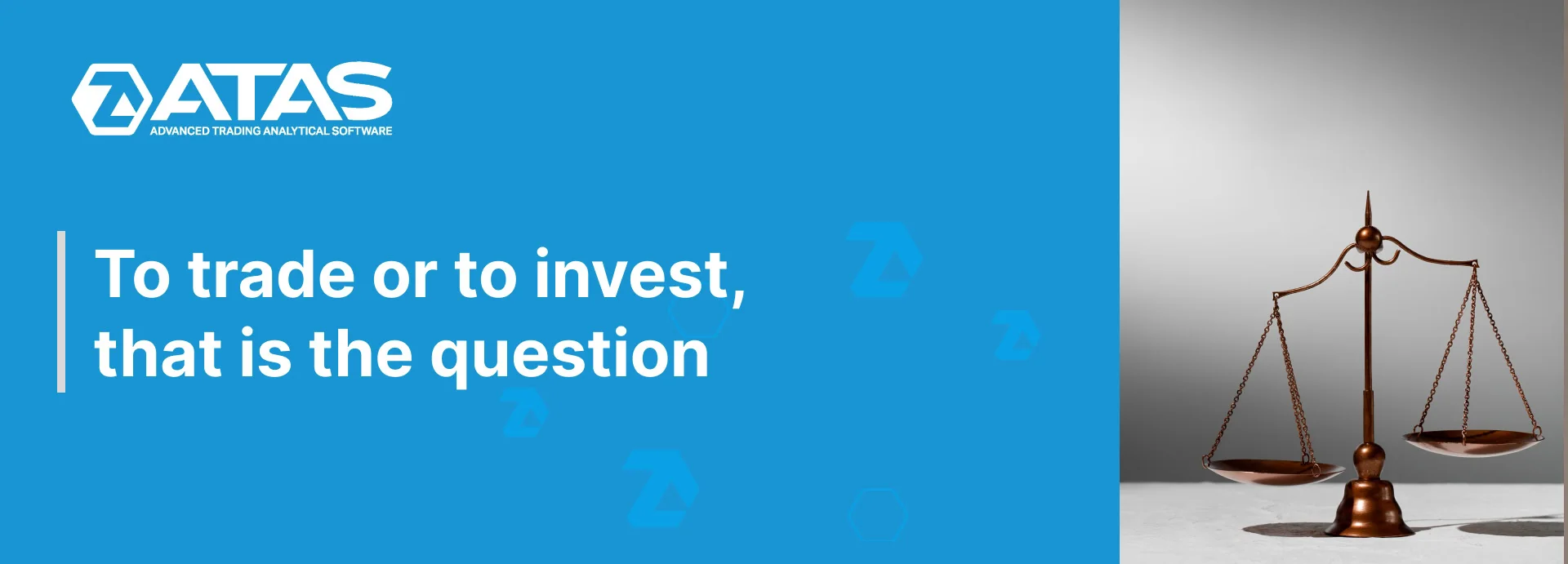Trading or investing – which to choose?
Trading financial instruments in the modern financial markets is a many-sided discipline, in which people from different social strata create the whole multitude of trading strategies known today.
At first sight, trading and investing might seem to be synonyms since the main goal of each of these types of activity is profitable trading in the financial markets through cheap buying and more expensive selling of an asset. And although making money in the financial markets is the final goal of both traders and investors, the methodologies of achieving this goal are significantly different. Let’s see what the differences between trading and investing are and which of these two forms of participation in the financial markets suits you best of all.
In this article:
- What is what?
- Main differences
- Pros and cons
What is what?
Practically all participants of the financial markets could be easily divided into two main groups: traders and investors. Although both these groups come to the market for conducting trading operations with the goal to make a profit, they apply completely different approaches.
An investor invests money into a number of assets with the goal to save and augment own wealth. Investors have a more traditional approach for working in the financial markets investing their capital into assets which are characterized with low risks and potential yield which exceeds the inflation rate.
It is a bit more difficult to define a trader. A trader actively trades regularly buying or selling different types of assets for making a profit as a result of changes in their value.
Main differences
Every person who starts to work in the financial markets has his grounds to do it. Some want to make a career while others are interested in saving their wealth made somewhere else. In the end, motivation of every participant identifies the approach he or she selects for working in the financial markets.
There are three fundamental differences between the trading and investing:
- Duration: one of the most significant differences between trading and investing is duration of a trade. Duration is a period of time during which a trade is open in the financial market. Of course, the trade duration also depends on timeframes used in trading. Unlike investing, trading has much shorter timeframes: intraday, daily and weekly timeframes. Much longer timeframes are applied in traditional investment models: monthly, yearly and even 10-year timeframes.
- Methodology: investing is based on many principles of classical finances, fundamental market analysis, diversification of an investment portfolio and the concept of asset management known as buy-and-hold. Trading, in its turn, more often is based on the volume and technical market analysis, algorithmic trading systems and various scalping strategies.
- Periodicity: trading requires active and regular trading in the financial markets for making profit. As a comparison, many investment plans do not require frequent trading activity, which assumes a relatively small number of executed trades for achieving long-term profitability yield.
Both trading and investing are efficient directions of operation in the financial markets and both of them offer opportunities for achieving success in the event of availability of a proven trading strategy which allows efficient use of the available trading capital.
Pros and cons
Trading and investing have both advantages and disadvantages. In the end, a beginner trader decides by himself what form of participation in the financial markets fits him best with consideration of his financial resources and financial goals.
Here are some pros and cons which are often associated with investing:
- Pros: Limited short-term liabilities, minimal expenses when executing trades and possible tax benefits make investing an attractive direction of activity.
- Cons: Availability of a big capital, limited level of profitability and a change in the market situation on the maturity date may create additional difficulties for an investor.
Here are some pros and cons which are often associated with trading:
- Pros: Lower requirements to the size of the trading capital (especially for intraday trading), significant reduction of systemic risks in short-term trading and potentially high regular income are the reasons why people go in for trading.
- Cons: Impact of short-term volatility, a higher income tax and sharp competition could become serious obstacles for a private trader.
Even despite the existing differences between trading and investing, these two main forms of participation in the financial markets could supplement each other. Trading, in the event of a reasonable approach to active trading, will help to augment the deposit, while investing will help to smooth down risks and facilitate more efficient use of the trading capital.



